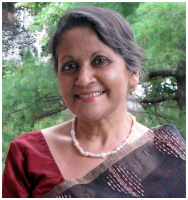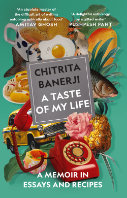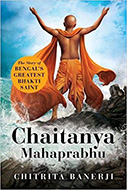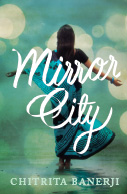Bittersweet in Bengal
It was during my first visit to Sadarghat, Dhaka’s biggest river terminal, that I first encountered what looked like pale green noodles. Appearance, however, was not reality. A cucumber had been artfully transformed by a young man in a food vendor’s stall.
Sadarghat milled with a truculent energy, to which a Babel of dialects, all Bengali, yet frequently unintelligible, gave voice. The occasional bleating of a goat or the clucking of chickens added to the cacophony. Steamboats loomed over us from their moorings. Farther away bobbed smaller fishing boats pinpointed by the diminutive beams of lanterns and oil lamps. Fumes of diesel and kerosene infused the air along with the odors of organic refuse, fried fish, chili pepper, garlic, onion and spiced meats. The commercial pulse of the city throbbed around me.
To my Calcutta Hindu family, Dhaka had always been a remote, watery hinterland, teeming with Muslims — a place of unimaginable perils best left unexplored. When I announced I was going to live there, several years after I shocked them by marrying a Bangladeshi Muslim I had met in America, they gave me up for lost. My own expectations were more optimistic, tinged only slightly with trepidation.
It didn’t take long to discover that under the legible surface of a shared Bengali culture and language, lay the more abstruse narrative of a city still married to the village. The long-drawn shriek of a lone white-breasted kite flying over the river carried enigmatic messages from distant zones, quite unlike the banal cawing of crows in Calcutta. Instead of high-rises, lakes filled with fish and enormous shade trees modified the cityscape, as did the banana groves and climbing vines around many houses.
Dhaka was the capital of a country that had staked its existence on being Bengali. For me, the Bengali from across the border, it presented a delightfully different expression of that identity, whether in the city’s euphoric celebration of the Bengali New Year, or during festivals when folksy touches colored the exotic and the Islamic. Eating the same vegetables, dal and fish I had grown up with, I was initially baffled by an unfamiliar undertaste, until I discovered the ubiquity of onions in the cuisine. Bengal’s glorious fish, hilsa, became more than a mere accompaniment for rice. Baked into a rice-flour crepe, it stunned my palate with its delicate intensity. And at elaborate, formal banquets, I occasionally came across the cucumber-as-noodles first seen in Sadarghat.
When I turned up for the preliminary ceremonies at a friend’s wedding, I was scolded by his mother for not wearing a yellow sari, the appropriate clothing for the “turmeric” ritual. Until then, I had no idea that this ritual, an inextricable part of Bengali Hindu weddings, could have any role in the contractual marriage ceremony of Muslims. Even nature presented a richer aspect. I learned to see the monsoon, Bengal’s signature season, as a deep, dark, joyous phenomenon, not merely an urban inconvenience.
Yet, the longer I lived in Dhaka, the more I found the charming otherness of the place invaded by disquieting, ominous elements — personal, social and political. Distrustful, impertinent queries from strangers deepened my unease: “From India? Hindu?” they asked, their narrowed eyes filled with unfriendly surmise — something that had never occurred in the early years of my stay. One day, hearing the daily prayer calls, I found myself aching for the sound of conch shells or temple bells, accompaniments of Hindu rituals I had never cared for earlier. Fine cracks — no more than the width of a consonant here, a vowel there — began to jolt my new-found relationships, leaving me desperately seeking a better vocabulary. The place I had once embraced as a home seemed increasingly alien. Dhaka, itself losing its modest charms en route to becoming a megacity, was making me into a foreigner rather than a Bengali.
In the absurd comedic course of life, the mantle of otherness even wrapped itself around me, as when a part-time maid reported how she had vigorously defended my reputation on hearing my neighbor remark I was a Hindu from India. After all, how could a person like me, who treated her servants so kindly, be anything but a genuine, god-fearing Muslim woman? Not having the courage to disillusion her, I held my peace, but the tiny act of self-negation left its mark. Along with several others, it propelled me to a point where optimism about making an acceptable life was finally vanquished. Still, it was not easy to turn away. The riverine soul of the city had secretly seeped into mine, and the sorrow of departure overwhelmed me like a monsoon flood.
Distanced now from the upheaval of that life, I feel relief and regret. Sometimes, I find myself back in Sadarghat. Under the sweeping indigo wings of a spring evening, the Buriganga River is a field of silvery gray. I see the young man with the cucumber, focused as a yogi, fingers plying his transforming knife. Among the many aspirations, big and small, I left unfulfilled in Dhaka is learning how to turn a cucumber into a plateful of green noodles.
(A different version was published in Traveller, London, Summer 2009)




